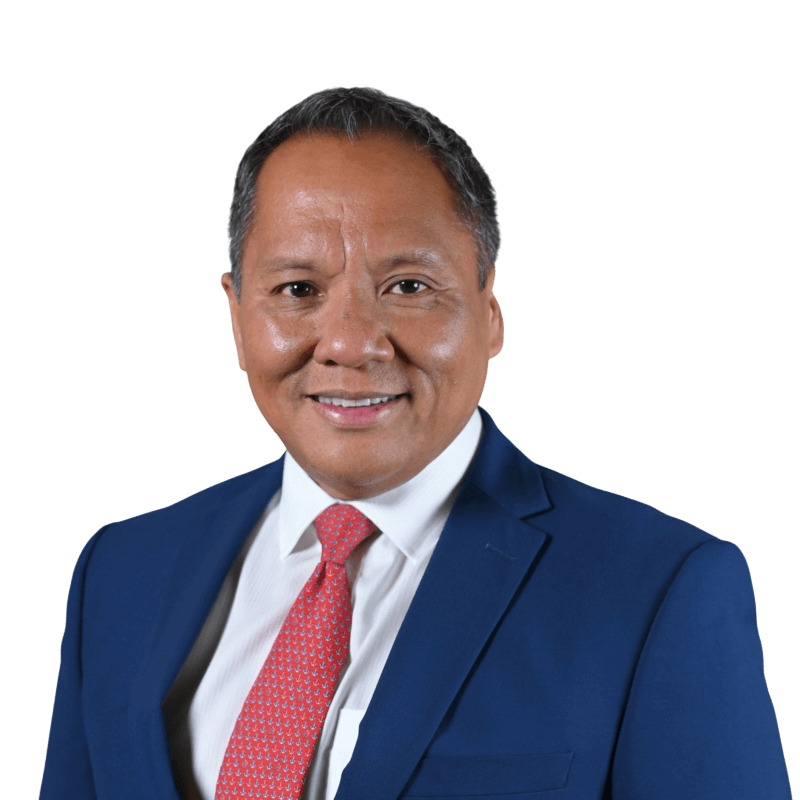Agenda
Registration
Welcome address

Aditi Sharma Kalra
Editor-in-Chief
[Opening keynote]
The mobility imperative: Revitalising mobility for agility, empowerment, and enduring impact
This session will highlight how mobility structures are being reinvented to drive competitiveness, attract talent, and manage costs effectively.
In this high-impact opening keynote, our distinguished speaker will delve into:
- Redesigning internal mobility frameworks to align with modern workforce realities.
- The growing role of local-plus and core-flex models in balancing cost control with employee empowerment.
- How mobility teams are evolving from transactional support to strategic talent enablers.
- Safeguarding employees in high-risk environments, from security threats to geopolitical and economic uncertainty.

Joel Leong
Head of Talent and Performance Management, Group Human Resources
[Keynote presentation]
Optimise people, costs, and opportunities: Research-driven insights for future-ready global mobility
This session will provide exclusive, research-based insights on the biggest trends in global mobility, offering practical guidance for organisations seeking to optimise their mobility strategies.
Let’s come together and gain insights into:
- Navigate today’s global mobility challenges and organisational priorities, understanding what drives success in international assignments.
- Explore the types of moves and assignments that best align with business objectives and employee needs.
- Optimise mobility costs by leveraging insights on budgets, international compensation, tax implications, and cost projections to make strategic, cost-effective mobility decisions.

Rob Line
Vice President, Global Consulting & Product Strategy
Morning break
Take a breather, grab a cup of coffee, and connect with fellow attendees before we dive back into the morning sessions.
[Panel discussion]
From compliance to competitive advantage: Unlocking growth through a localised talent pipeline
In this panel, we look forward to a robust conversation on:
- How organisations are leveraging both global mobility and local capability building to accelerate skills transfer and build resilient, future-ready teams.
- Strategies for integrating local talent development with global capability flow to unlock competitive advantage.
- Building sustainable talent pipelines that align with an organisation’s long-term workforce development priorities.

Andrew Sam
Global Talent Acquisition Director

Audrey Ng
Head of People & Organisation (Global)

Jo-Lynn Wee
Senior Director, Global Talent Mobility

Seah Lee Mui
Director, New Operations Division
[Interactive discussion 1 of 3]
You’ll be engaged in three roundtable discussions throughout the day, each topic led by a zone host. Topics include building a borderless strategy for global talent, tracking, measuring, and optimising end-to-end impact, and articulating the ROI of employee mobility.
Click here to find out more about each topic, and to meet the zone host.
Networking lunch
Recharge over a hearty lunch, exchange ideas, and make new connections, then return refreshed and ready for the afternoon ahead!
[Interactive discussion 2 of 3]
You’ll be engaged in three roundtable discussions throughout the day, each topic led by a zone host. Topics include building a borderless strategy for global talent, tracking, measuring, and optimising end-to-end impact, and articulating the ROI of employee mobility.
Click here to find out more about each topic, and to meet the zone host.
[Panel discussion]
Internal mobility as a retention tool: Building engagement through purposeful career movement
When employees see tangible pathways to new roles or skill-building projects internally, they’re less likely to seek growth elsewhere. But enabling this requires a cultural shift – let’s find out what that is.
Join our panel of experts, as they explore:
- Turning internal movement into a retention engine: Creating visible, structured pathways for progression across departments and regions.
- Balancing transparency and fairness: Leveraging internal marketplaces and clear communication to match talent with opportunities effectively.
- Building a movement-friendly culture: Coaching leaders to celebrate internal transitions rather than resist talent flow.

Balakarthikeyan Nagarajan
APAC People Operations Leader

Bamidele Aremu
Director, Total Rewards – AMEA

Genie Chua
Talent Mobility Manager

Sean Lim
Chief Human Resource Officer
Afternoon break
Refuel with a cup of coffee or tea and enjoy a quick chat with peers before we wrap up the day’s final sessions.
[Interactive discussion 3 of 3]
You’ll be engaged in three roundtable discussions throughout the day, each topic led by a zone host. Topics include building a borderless strategy for global talent, tracking, measuring, and optimising end-to-end impact, and articulating the ROI of employee mobility.
Click here to find out more about each topic, and to meet the zone host.
[Case study]
From mobility to access: Building a borderless strategy for global talent
This session explores how to strategically redefine mobility — determining when relocation still drives business and leadership value, and when virtual deployment or local-plus models offer greater returns.
In this session, we will explore:
- Prioritising access to the right skills, leadership, and capabilities over traditional relocation models.
- Leveraging a mix of hybrid talent mobility strategies to deliver business impact where and when it is needed.
- Clarifying the scenarios where physical relocation creates unique strategic value.
Speaker:

Yee Ling Lee
VP, Group People Development
Closing remarks

Aditi Sharma Kalra
Editor-in-Chief
End of Talent Mobility 2026
[Interactive topic #1]
The borderless workforce: Unlocking global capability through flexible talent ecosystems
In this conversation, we will gain insights on:
- Leveraging gig and platform ecosystems: Unlocking on-demand skills across borders.
- Agile deployment models: Structuring virtual collaboration to accelerate capability development and market responsiveness.
- Governance and alignment: Maintaining performance, data security, and cultural cohesion in a dispersed workforce.

Jackson Teng
Senior Director, Asia Talent Acquisition & Workforce Development
[Interactive topic #2]
Charting what’s next: Navigating the new reality of global mobility
Organisations now face intense competition for critical skills, increasing regulatory complexity, rapid digital innovation, geopolitical instability, evolving employee expectations, heightened cost scrutiny, and a fundamentally changing nature of work. Global mobility teams are being asked to do more with fewer resources—while the stakes have never been higher.
In this session, we will discuss:
- The global mobility trends shaping programmes in 2026 and beyond.
- Balancing employee experience with cost discipline while driving strategic impact.
- Understanding the evolving role of Global Mobility—from operational support to strategic business enabler.

Dean Bennetts
Vice President Business Development APAC

Kelly Cheong
Regional Business Development Director
[Interactive topic #3]
Making the business case: Articulating the ROI of employee mobility
In this conversation, let’s learn how to:
- Craft compelling narratives that show how mobility fuels innovation and business growth.
- Harness data to optimise talent deployment and identify cost-saving opportunities.
- Collaborate with stakeholders to align mobility with organisational goals and measurable impact.
Zone 1 host:

Justin Kwok
International Mobility Partner APAC
Zone 2 hosts:

Elodie Marques
Global Consulting Leader, APAC

Paul Franco
Director, Strategic Business Solutions
